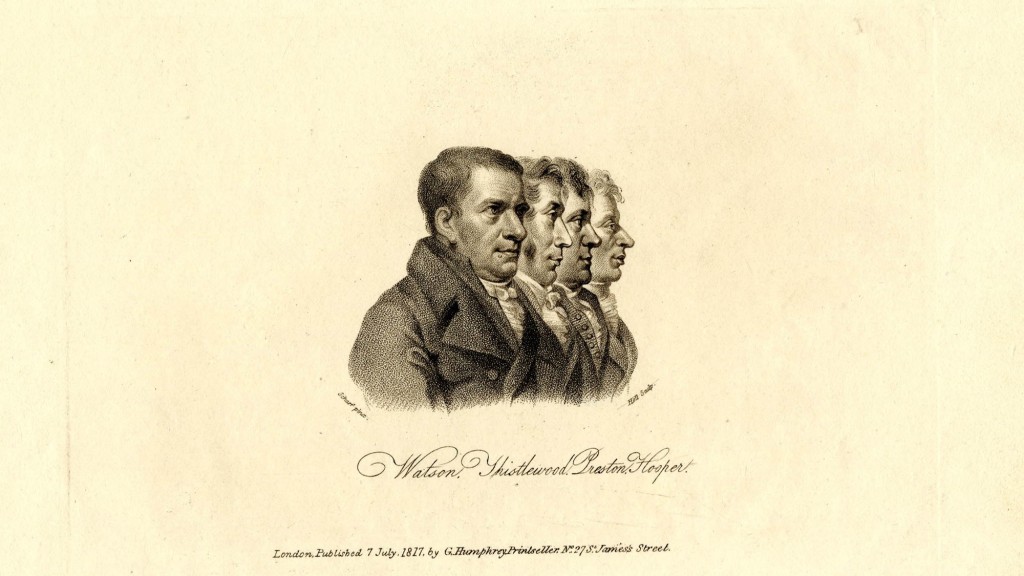The government was unpopular because of its indifference to the mass unemployment and starvation in Britain following the end of the Napoleonic Wars. MPs were primarily landowners unaccountable to the mass of British people and enacted laws for their benefit. The infamous Corn Laws were a case in point. Reformers calling for universal male suffrage and new constituencies in the new populous industrial centres such as Manchester to make Parliament more accountable.
The British government was merely indifferent to the needs of the populace but actively hostile to reformers were calling for universal male suffrage and parliamentary reform. Probably the most notorious example is the Peterloo Massacre of August 1819 where eighteen people died when cavalry charged into a crowd of around 60,000 people who had gathered to petition for parliamentary representation.
The government fought against reformers not only with force but with the law. In 1817 it suspended Habeas Corpus allowing imprisonment of opponents without trial. Following Peterloo, the government doubled down on repressive legislation limiting further the means through which people could protest. The Seditious Meetings Act made it illegal to hold a meeting of more than 50 people without the approval of a magistrate. Through the Seditious Libels Act 1819 reformist or radical authors, printers and publishers faced 14 years transportation.

And the other weapon in the government arsenal to oppose its opponents was its network of spies and paid-informers. [not unlike the methods used against Caroline] Notorious show trials, based on the evidence of agent provocateurs, were relatively common during Caroline’s exile. The Spa Fields Riots defendants were fortunate to be acquitted in 1816 when the role of the government agent was discovered. In 1817, three men involved in uprising in Pentrich, Derbyshire were not so fortunate. They were hanged, drawn and quartered.
And it is in this context it is understandable that the government were willing to pay Caroline to stay abroad despite the weight of evidence against her.
In 1814 Caroline had demonstrated her ability to harness public opinion behind her. In the intervening years, the opposition to George and the government had grown. The last thing the government wanted was the return of Caroline to become a rallying point for the widespread dissent.


